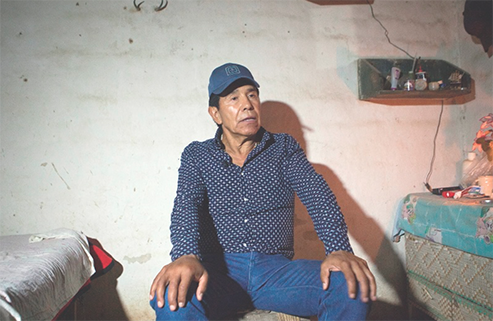Rafael Caro Quintero, the long-pursued Mexican drug lord and former head of the defunct Guadalajara Cartel, has been apprehended by authorities in a symbolic coup that will have a scant impact on the country’s drug trafficking landscape.
Late on July 15, Mexican authorities announced the arrest of Caro Quintero, 69, in the western state of Sinaloa.
According to the Navy, Caro Quintero was found hiding in bushes in the town of San Símon. He is now being held at the Altiplano maximum security prison in the State of Mexico before likely being handed over to US authorities for extradition.
Caro Quintero’s capture came at a severe price. During the operation, a Navy helicopter crashed in the town of Los Mochis, Sinaloa, killing 14 Navy personnel. Mexican President Andrés Manuel López Obrador expressed his regret over the deaths and said authorities were investigating the cause of the crash.
SEE ALSO: Failed Kingpin Strategy at Heart of New US-Mexico Security Plans
US authorities had been looking for Caro Quintero since he walked free from a Mexican prison in 2013 after serving only 28 years of a 40-year sentence for the 1985 murder of DEA agent Enrique “Kiki” Camarena. At the time of Camarena’s killing, Caro Quintero was a leading figure in the Guadalajara Cartel, Mexico’s first dominant organized criminal group, and which would later morph into the Sinaloa Cartel.
His early release on a technicality did not lessen the US desire to catch him.
First, the Drug Enforcement Administration (DEA) and then the Federal Bureau of Investigation (FBI) placed Caro Quintero on their most-wanted lists.
Following his release, Caro Quintero went back to his life of crime. In 2017, he helped found the Caborca Cartel in Sonora.
Though the Caborca Cartel carved out a bloody reputation for itself in the state, it remained a localized player. And Caro Quintero’s role within it, besides providing a famous name, was uncertain.
His reputation was also revived thanks to the Netflix series, Narcos, where he was played by Mexican actor Tenoch Huerta.
InSight Crime Analysis
The timing of Rafael Caro Quintero’s arrest is suspicious, coming mere days after US President Joe Biden met with Mexico’s President Andrés Manuel López Obrador at the White House.
For some analysts, this was no coincidence. David Saucedo, a leading security analyst, suggested the two presidents had come to an agreement. “They surely agreed to turn over high-profile drug traffickers again, which had been suspended,” Saucedo told ABC.
If true, this would mark a continuation of the controversial Kingpin strategy. This focus on killing, or capturing and extraditing, top drug traffickers has been a long-term priority for both the United States and Mexico. But there have been little to no security improvements as a result.
SEE ALSO: Tenoch Huerta on Playing Nuanced Caro Quintero in ‘Narcos Mexico‘
Former Mexican President Enrique Peña Nieto declared at the start of his term in 2012 that he had put together a list of 122 high-priority targets to be arrested. Six years later, 110 of them had been arrested or killed. But in that time, homicides had increased by 14 percent.
A study by the Modern War Institute at West Point found that this continued focus on removing the leaders of Mexican groups had been a contributing factor toward the “multiheaded, increasingly local jumble of conflicts.”
Removing a major crime head often leads to a group fragmenting and falling prey to internecine conflicts. Smaller criminal groups then fight more bloodily for smaller territories or less profitable criminal economies.
Rafael Caro Quintero himself profited from this fact. Prior to the arrest and extradition of Joaquín Guzmán Loera, alias “El Chapo,” the Sinaloa Cartel largely controlled the Mexican state of Sonora. The removal of Mexico’s most famous narco allowed Caro Quintero’s Caborca Cartel to begin contesting criminal economies near the US border from factions of the Sinaloa Cartel.
Rafael Caro Quintero’s capture scratches a longstanding itch for US authorities. This arrest brings a measure of closure to the murder of Camarena, which remains one of the most infamous moments in the US’ “war on drugs.”
But there should be no illusions about its actual impact. Caro Quintero was no longer the influential figure who founded the Guadalajara Cartel. His new group, the Caborca Cartel, wielded strong influence in Sonora but never came close to breaking out nationally or to really threatening Sinaloa Cartel interests.
For Falko Ernst, senior Mexico analyst for International Crisis Group, this was a “largely cosmetic arrest.” Instead of Mexico showcasing innovative anti-drug policies, this showed a return to the “failed kingpin strategy instead of comprehensive solutions. It seems to further support Mexican federal government’s operational preferences,” wrote Ernst on Twitter.

